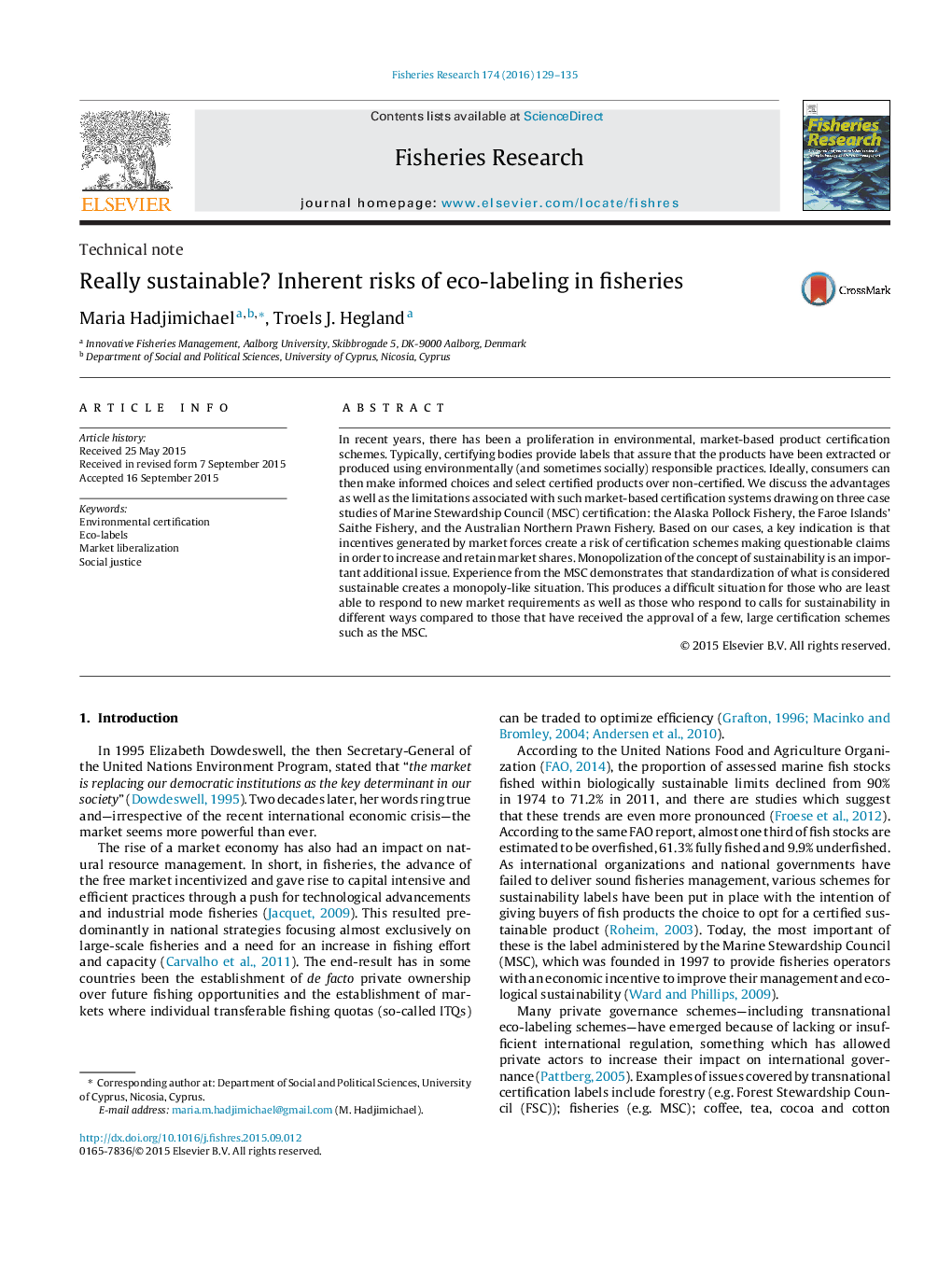| Article ID | Journal | Published Year | Pages | File Type |
|---|---|---|---|---|
| 6385576 | Fisheries Research | 2016 | 7 Pages |
Abstract
In recent years, there has been a proliferation in environmental, market-based product certification schemes. Typically, certifying bodies provide labels that assure that the products have been extracted or produced using environmentally (and sometimes socially) responsible practices. Ideally, consumers can then make informed choices and select certified products over non-certified. We discuss the advantages as well as the limitations associated with such market-based certification systems drawing on three case studies of Marine Stewardship Council (MSC) certification: the Alaska Pollock Fishery, the Faroe Islands' Saithe Fishery, and the Australian Northern Prawn Fishery. Based on our cases, a key indication is that incentives generated by market forces create a risk of certification schemes making questionable claims in order to increase and retain market shares. Monopolization of the concept of sustainability is an important additional issue. Experience from the MSC demonstrates that standardization of what is considered sustainable creates a monopoly-like situation. This produces a difficult situation for those who are least able to respond to new market requirements as well as those who respond to calls for sustainability in different ways compared to those that have received the approval of a few, large certification schemes such as the MSC.
Related Topics
Life Sciences
Agricultural and Biological Sciences
Aquatic Science
Authors
Maria Hadjimichael, Troels J. Hegland,
